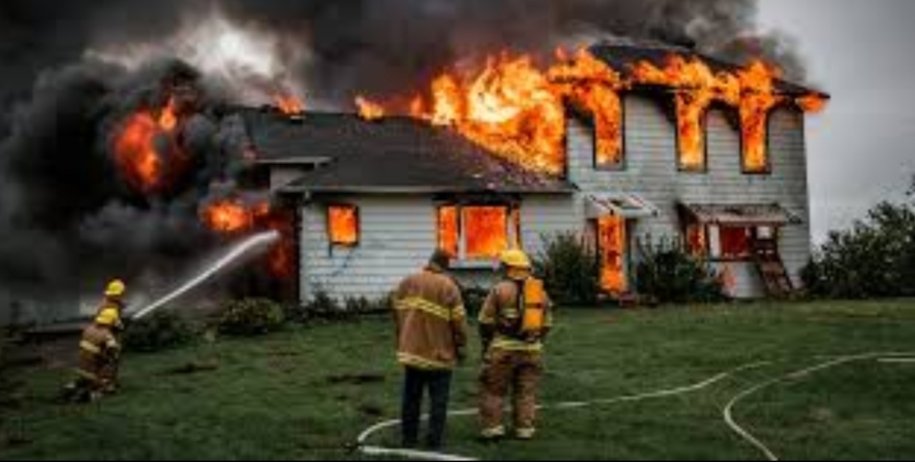A professional assessment helps identify potential fire hazards, evaluate current safety measures, and provide practical recommendations to reduce risks. By investing in a proper Fire Risk Assessment London, companies can protect their employees, customers, and assets while meeting legal responsibilities and avoiding costly penalties.
A fire breaking out in your home is a terrifying experience that can quickly turn life-threatening. Understanding what to do in the event of a fire can significantly increase your chances of staying safe. To further enhance your preparedness, consider a comprehensive Fire Risk Assessment in London, which can provide valuable insights tailored to your specific circumstances. This blog will guide you through the essential steps to take if a fire starts in your home.
Stay Calm and Assess the Situation
When you first notice a fire, it’s crucial to stay calm. Panicking can cloud your judgment and slow your reaction time. Quickly assess the situation to determine the best course of action. If the fire is small and manageable, you might be able to put it out with a fire extinguisher. However, if the flames are spreading rapidly or you’re unsure of the source, it’s safer to evacuate immediately.
Regularly conducting a Fire Risk Assessment not only enhances safety standards but also builds confidence among occupants and stakeholders, demonstrating a strong commitment to fire prevention and workplace security.
Sound the Alarm
One of the first things you should do when you discover a fire is to alert everyone in the home. If your smoke detectors are functioning properly, they should automatically sound an alarm. If not, shout and knock on doors to ensure everyone is awake and aware of the danger. Promptly alerting everyone is crucial for a coordinated and safe evacuation.
Call for Help
Once everyone is out of immediate danger, call emergency services. Even if the fire seems small, it’s essential to report it to the fire department. Firefighters can provide the expertise needed to fully extinguish the fire and ensure that there are no hidden dangers, such as smoldering embers that could reignite.
Evacuate Safely
Your priority during a fire should be to get out of the house as quickly and safely as possible. If smoke is filling the rooms, stay low to the ground where the air is clearer. Use the back of your hand to check doors for heat before opening them. If a door is hot, it could indicate that fire is on the other side. Instead, find an alternative route.
If you encounter smoke while evacuating, cover your nose and mouth with a cloth to reduce inhalation of toxic fumes. Do not use elevators during a fire, as they can become inoperable or malfunction due to heat or power failures. Stick to stairways for a safer exit.
Meet at the Designated Meeting Point
Once you’ve exited the house, go to your designated meeting point. This should be a location outside your home, like a neighbor’s house or a street corner, where everyone in your household can gather. A designated meeting point ensures that you can account for everyone and that emergency responders know where to find you.
Do Not Re-Enter the Home
It’s natural to want to retrieve personal belongings or check on pets, but re-entering a burning building is extremely dangerous. The structure may be unstable, and the fire could spread rapidly. Wait for the fire department to give you the all-clear before considering re-entry.
If Trapped, Signal for Help
If you find yourself trapped inside, try to stay calm and think clearly. Use a cloth to block smoke from entering your airways and signal for help by waving a cloth out of a window or making noise. If possible, use a phone to call emergency services and provide your exact location. Firefighters are trained to rescue individuals in these situations and will be able to help you.
Take Precautions to Prevent Future Fires
After the immediate danger is over, take steps to prevent future fires. Review your home’s fire safety measures, such as ensuring smoke detectors are installed and working correctly. Practice regular fire drills with your family to make sure everyone knows how to respond in the event of a fire. Keep fire extinguishers accessible and learn how to use them properly.
Conclusion
Experiencing a fire in your home is a frightening and stressful ordeal. However, knowing the right actions to take can make a significant difference in ensuring everyone’s safety. By staying calm, sounding the alarm, calling for help, evacuating safely, and following these guidelines, you can protect yourself and your loved ones during a fire emergency. Remember that preparation is key—regularly review and practice fire safety procedures to minimize risks and enhance your ability to respond effectively. For added peace of mind, you might also consider obtaining an EICR Cert, which can help ensure your property meets all necessary safety standards, If you want to stay updated with posts like this, please follow us on Drity Ship.



